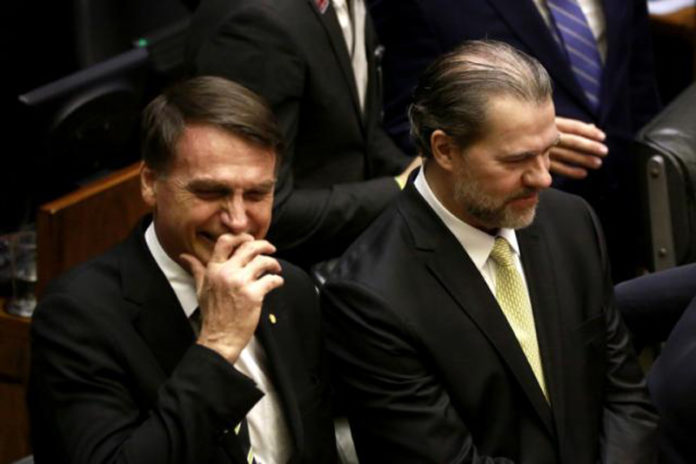Naief HADDAD, Folhapress
São PAULO, SP (folhapress)-with 30 years recently completed, the Brazilian Constitution is subjected to the most intense stress test of its entire trajectory. The fragilization of the commitment signed in 1988 results, above all, of traumatic episodes in the life of the country that accumulate since 2013.
This is one of the central theses of the new “The Battle of Powers”, a book by Oscar Vilhena Vieira, director and professor at the São Paulo School of Law of Fundação Getulio Vargas.
Columnist of Folha de S. Paulo, the author proposes in the introduction to make a “reading of the Brazilian constitutional experience in its context from this turbulent thirtieth year of validity”. Today’s commented records and analyses of the country’s recent past are intertwined, therefore, throughout the entire book.
The year 2013 back to gaining flagship cargo, is a key moment to understand the plumb loss of the political system. That year, the enormous demonstrations took place and, in the following year, a strongly polarized election between Dilma Rousseff (PT) and Aécio Neves (PSDB).
From then on, as Vieira writes, the crises succeed: the economy in recession, the corruption schemes established by Operation Lava Jato, the controversial impeachment of Dilma, the survival of Michel Temer after the also controversial trial of the TSE ( Electoral Supreme Court).
The tension remains in the following months: The arrest of former president Lula, the stoppers of truckers and, in the words of the author, “The Electoral phenomenon of Jair Bolsonaro, leader of the extreme right”.
For Vieira, these episodes “show that we are experiencing a situation of profound constitutional uneasiness”.
According to him, President Jair Bolsonaro (PSL) has presented a “very hostile rhetoric against constitutional values, against rights of specific groups”, which can make room for “greater degradations.”
Although the author identifies a regression movement, it is not enough to associate the moment we live in a constitutional crisis. “I call it a classic crisis in which an external political actor interferes or[na Carta Magna] an actor from within the system says he will act against the constitution because it does not offer the mechanisms for it to take a certain initiative. It didn’t happen, “he says.
The book also points out the responsibility of the judiciary for this “constitutional malaise”. For this, the author resumes the concept of “supremocracy”, used by him in previous texts.
The Pact of 1988 extended the powers of the organs of justice and, as an unfolding, the STF (Supreme Court) acquired an unusual protagonism. “I call supremocracy this recurrent incidence of the supreme in Brazilian life, giving the last word on issues of a political, moral, tax nature,” says Vieira.
This institutional engineering that attaches such force to the STF should be avoided. This is not enough, the supremocracy has seen, in recent years, sunk into a crisis. The STF has lost consistency with the increasing amount of decisions taken in a monocratic manner.
“We created a guardian of Brazilian democracy that should work collegiously,” he says. And there is also the overexposure of a good part of the ministers, who publicly comment on judgments, unacceptable practice in traditional democracies, such as the USA.
In short, the supremocracy in crisis is the mistrust in the capacity of the STF to act impartially.
In the last paragraph of “The Battle of powers,” Vieira draws attention to the supreme’s responsibility as a mechanism of brakes and counterweights in a democracy. As such, it must protect the fundamental rights of the population amid the recent wave of constitutional hostility.
This year that begins, we will know if the STF is able to withstand the challenge.
The Battle of the powers
Price R $50 (digital version, R $35), 234 pages.
Author Oscar Vilhena Vieira
Editora Companhia das Letras
Source: www.br.yahoo.com















